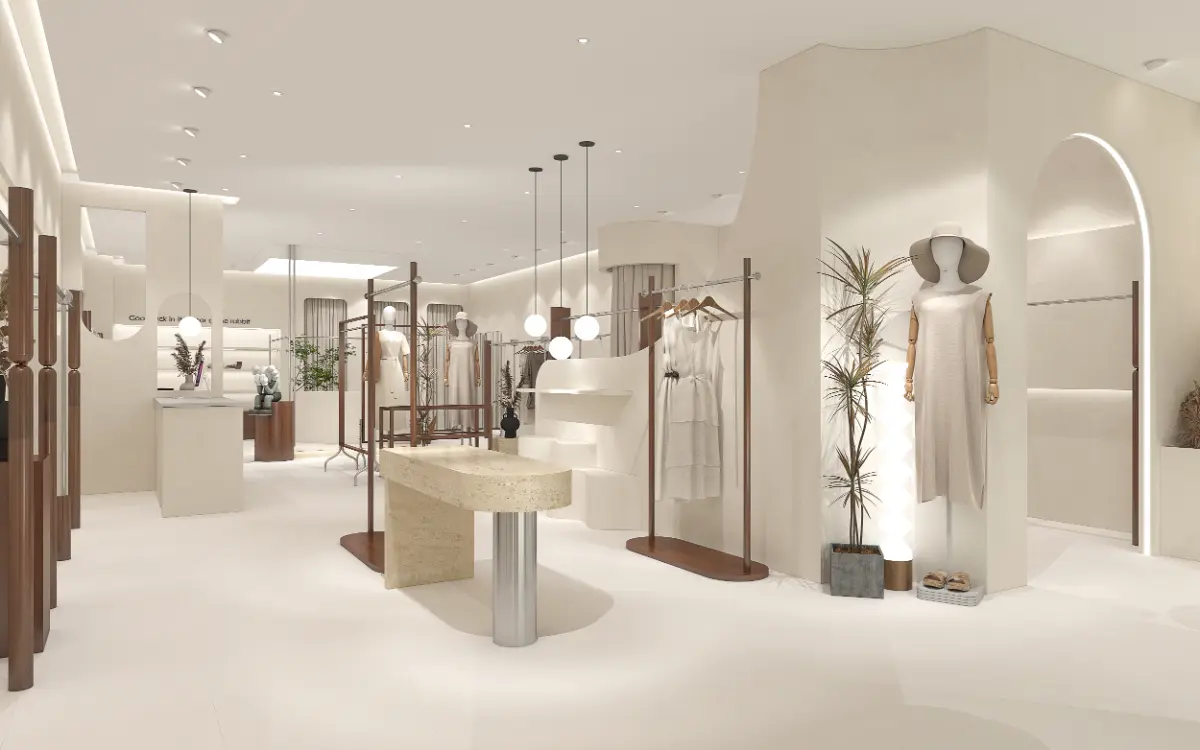Apparel Display Racks Planogram: Front-Facing, Cross-Merch, and Outfit Wall Strategies
In the world of fashion retail, apparel display racks are more than just functional fixtures — they are silent salespeople. A well-planned retail store clothing display can elevate your brand image, guide customer flow, and boost conversion rates. Whether you manage a boutique, department store, or shopping mall, understanding how to implement strategic display racks for clothing stores is key to creating a seamless shopping experience.
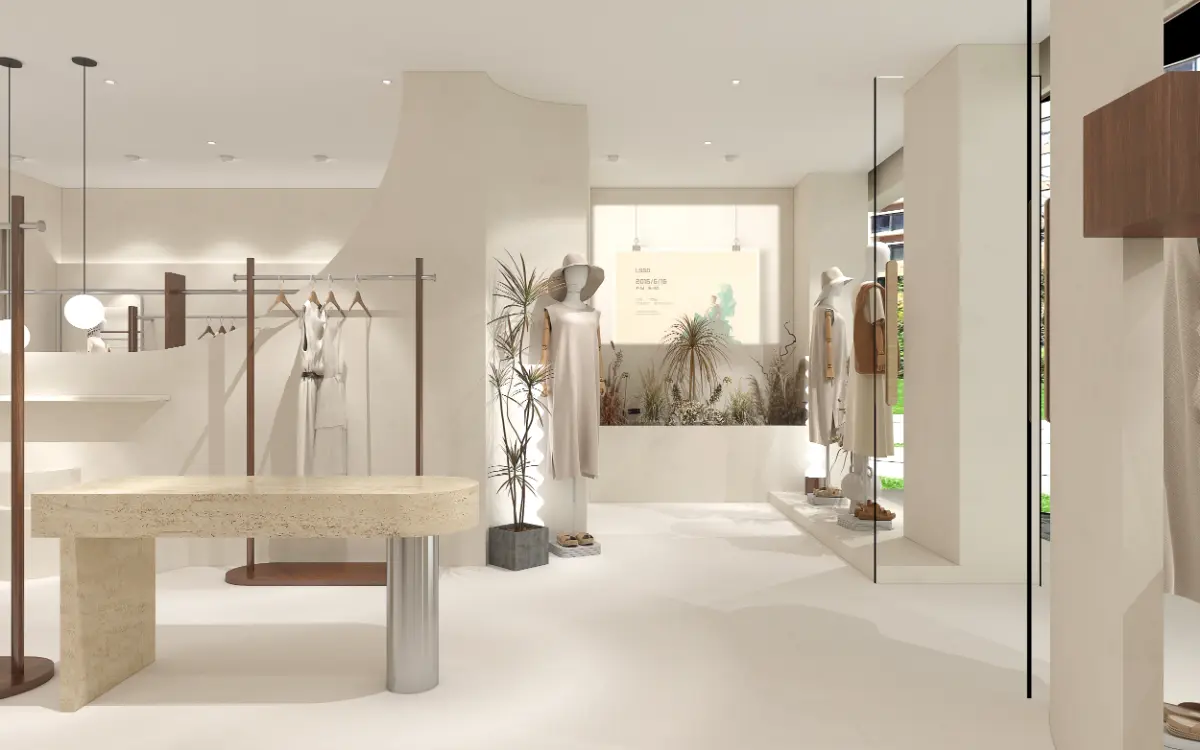
Understanding the Purpose of Apparel Display Racks in Retail Stores
Apparel display racks serve as the backbone of your garment shop display. They provide structure, highlight featured collections, and communicate your store’s brand personality. The layout and positioning of these racks directly affect how customers perceive your store and engage with your products.
From sleek wall-mounted systems to versatile freestanding racks, every display unit should be chosen with both aesthetics and functionality in mind. The right display system ensures that your merchandise looks inviting while maintaining organizational efficiency.
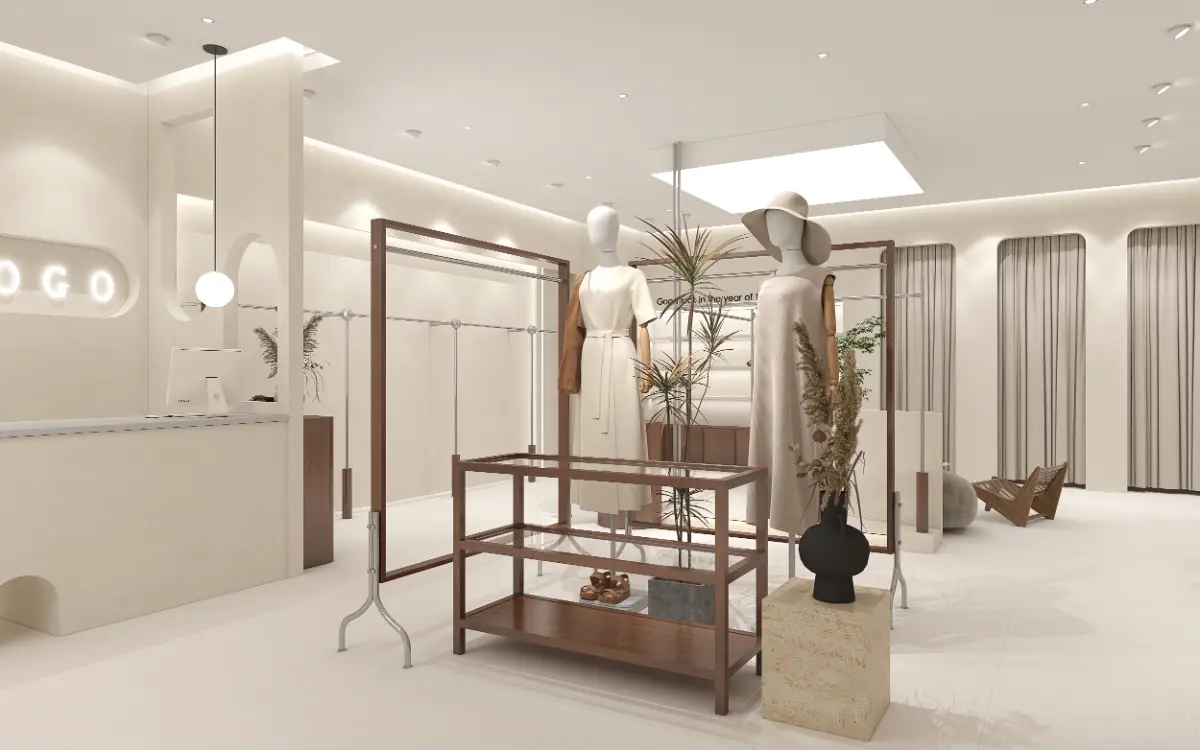
Why Effective Retail Store Clothing Display Matters
A powerful store layout can increase customer dwell time and drive sales. Visual merchandising is not just about beauty — it’s a psychological tool. Studies show that shoppers are more likely to purchase when items are displayed clearly and creatively. A well-designed apparel display communicates brand identity and encourages cross-category exploration.
Core Types of Display Racks for Clothing Stores
- Wall-mounted racks: Perfect for maximizing vertical space and creating focal points.
- Freestanding racks: Ideal for new arrivals or sale items positioned in the customer pathway.
- Round garment racks: Allow customers to browse from multiple angles.
- Modular shelving systems: Provide flexibility for changing seasonal collections.
- Mannequin displays: Bring outfits to life by showcasing complete looks.
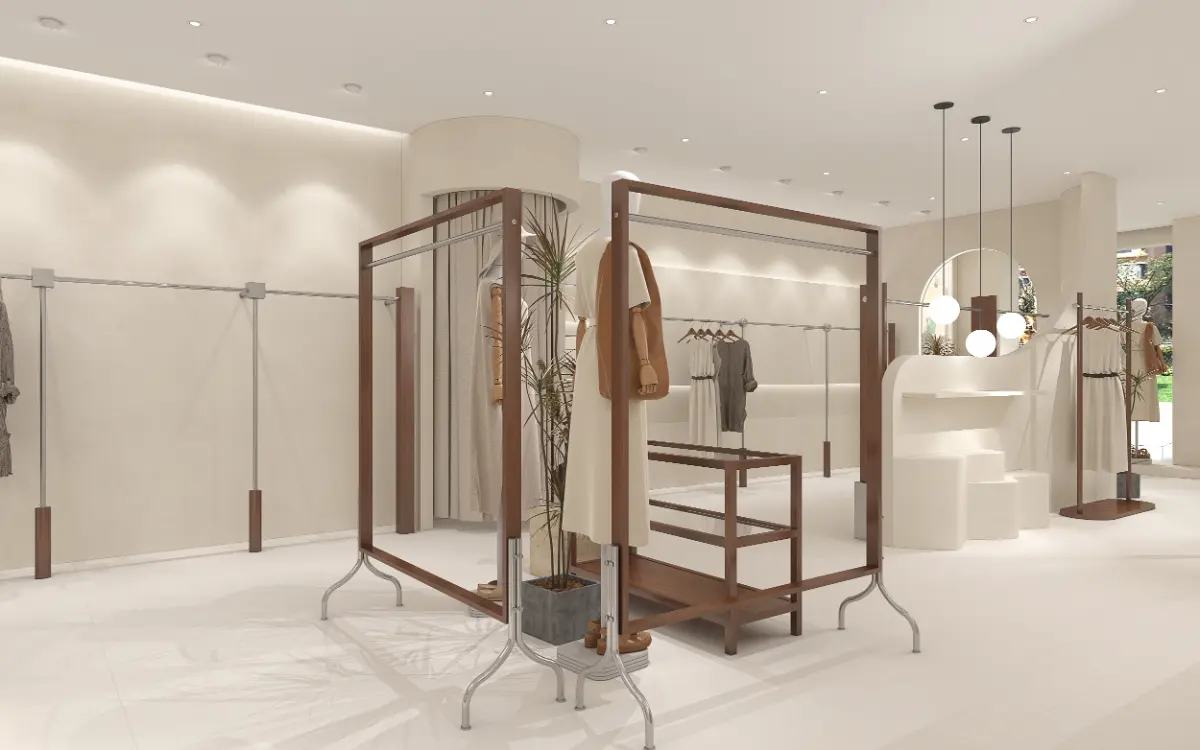
The Science Behind Planogram Design
A planogram is a visual blueprint that determines where and how products are displayed in a retail environment. For clothing stores, it aligns inventory strategy with customer experience. By implementing planograms, retailers can ensure balanced product exposure, logical flow, and consistent brand storytelling across multiple locations.
Strategy 1: Front-Facing Display — Maximizing Product Visibility
Front-facing displays highlight the best features of each item by positioning garments outward rather than side-stacked. This simple shift increases visual appeal and makes color coordination easier. For premium fashion retailers, the front-facing method is essential for emphasizing texture, detail, and brand prestige.
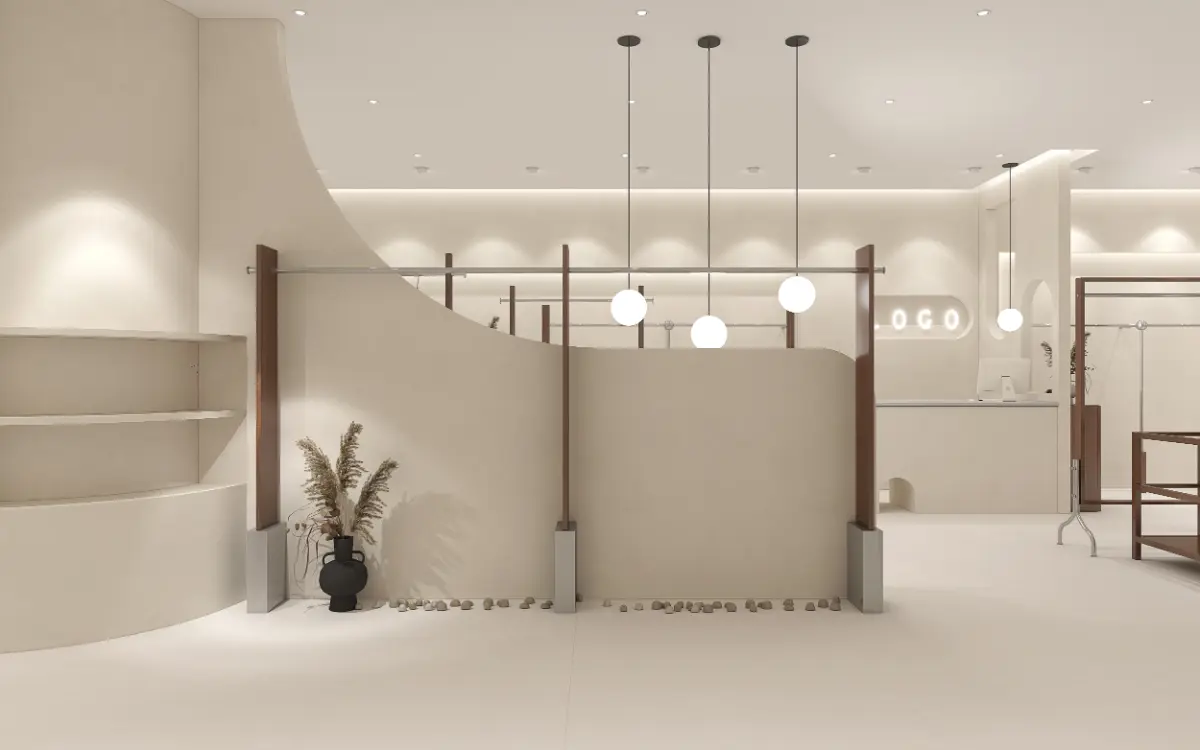
Visual Hierarchy and Color Coordination
Effective visual hierarchy ensures that customers’ eyes are naturally drawn to hero products first. Color gradients, lighting, and symmetry play an important role. Arrange outfits by theme, color palette, or occasion to tell a clear visual story. Incorporate soft LED spotlights to enhance texture and create depth.
Strategy 2: Cross-Merchandising Displays — Boosting Impulse Sales
Cross-merchandising connects products that complement each other, encouraging impulse purchases. For instance, pairing blouses with matching skirts or accessories near each other helps customers visualize a complete look. It’s a proven method to increase basket size without feeling pushy.
Seasonal and Lifestyle Cross-Merch Ideas
- Summer: Pair beachwear with hats, sandals, and tote bags.
- Winter: Combine outerwear with scarves and gloves on one rack.
- Office: Display blazers with matching trousers and accessories.
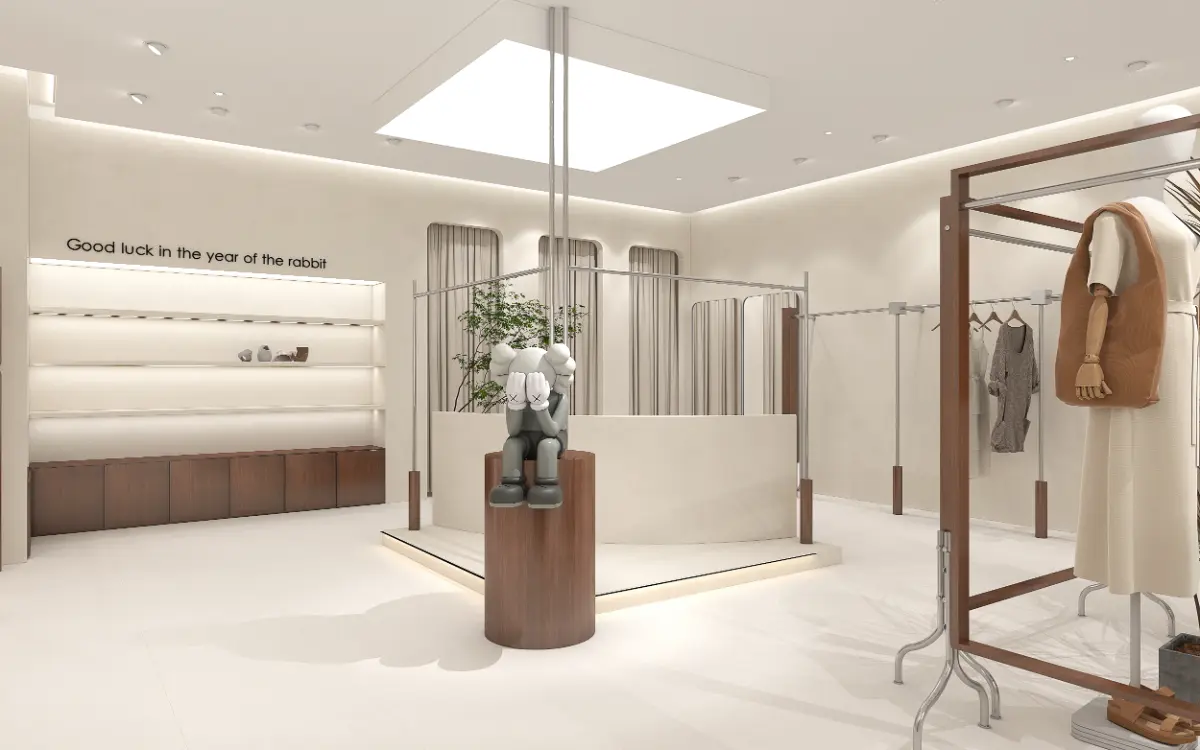
Strategy 3: Outfit Wall Displays — Storytelling Through Fashion
Outfit wall displays transform your apparel into lifestyle inspiration. This strategy is powerful for creating brand stories through combinations of garments. Each wall can represent a theme — casual weekend, business chic, or evening elegance. When coordinated correctly, it enhances emotional engagement and brand recall.
Using Brand Identity in Wall Displays
Your wall displays should reflect your brand DNA. Use textures, fixtures, and color schemes that align with your overall identity. For example, minimalist brands may opt for clean lines and neutral backgrounds, while bohemian stores might favor warm lighting and rustic hangers.
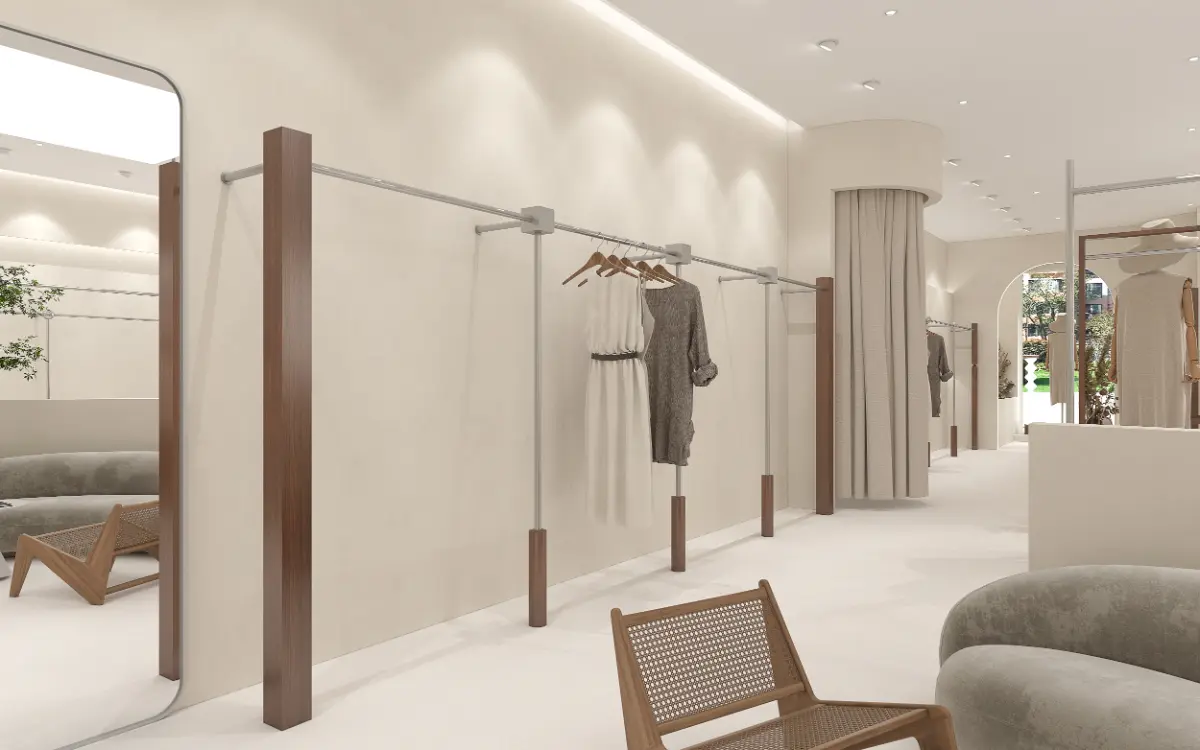
Creating a Balanced Store Layout with Apparel Display Racks
Balance is essential when arranging racks in your store. Ensure wide aisles for easy navigation, mix product categories strategically, and avoid clutter. Customers should feel both guided and free to explore. The goal is to create a rhythm that encourages flow from one section to another naturally.
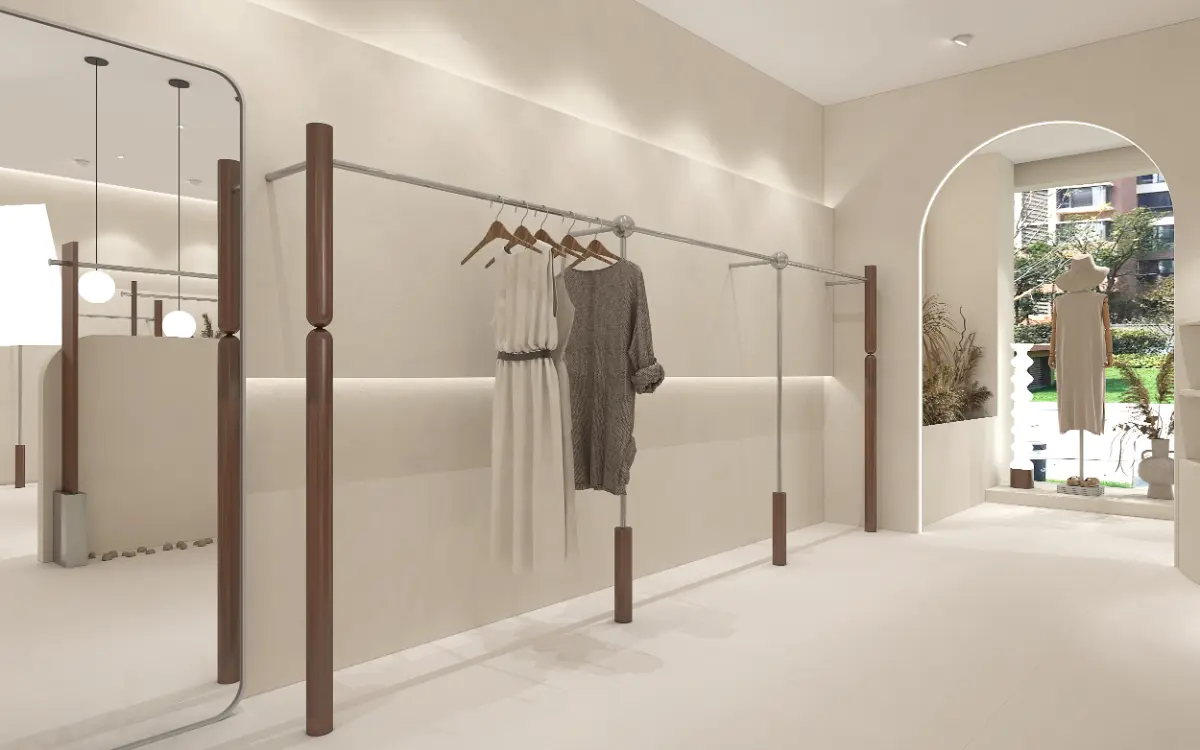
Display Lighting and Material Choices
Lighting transforms the shopping atmosphere. Use warm tones for cozy collections and cool lights for modern displays. Meanwhile, select rack materials — chrome, wood, or matte black metal — that match your brand personality. Sustainability-conscious shoppers appreciate eco-friendly materials such as bamboo or recycled metal racks.
Common Mistakes in Garment Shop Display Design
- Overcrowding racks with too many SKUs.
- Neglecting lighting quality and direction.
- Using inconsistent signage or outdated mannequins.
- Failing to refresh seasonal displays.
Digital Integration: Using Tech in Display Planning
Modern visual merchandising integrates digital tools such as 3D modeling and AR simulations. Retailers can preview rack arrangements, test color schemes, and even analyze customer movement patterns to optimize displays. This technology-driven approach ensures data-backed design decisions.
Case Study: Transforming a Store with a Professional Planogram
One mid-sized fashion retailer partnered with MOR Shopfitting to redesign their store layout. By implementing a new apparel display rack planogram, they achieved a 22% increase in average transaction value within three months. The strategy focused on front-facing hero products, curated cross-merch sections, and unified wall displays — creating a visually engaging shopping environment.
FAQs on Apparel Display Racks and Retail Displays
1. What is the best type of apparel display rack for small clothing stores?
Wall-mounted and modular racks are ideal because they maximize vertical space and allow flexibility in arrangement.
2. How often should I update my store displays?
It’s recommended to refresh visual displays every 6–8 weeks to maintain customer interest and reflect new arrivals.
3. What materials are most durable for clothing display racks?
Powder-coated steel and tempered glass are popular choices for long-lasting retail fixtures.
4. How can I use lighting to improve my apparel display?
Directional lighting helps highlight textures and colors. Avoid harsh light — opt for soft LED spotlights instead.
5. What’s the ideal distance between display racks?
Maintain at least 1.2 meters (4 feet) for comfortable browsing and accessibility compliance.
6. Can planograms work for multi-location retail chains?
Absolutely. Planograms ensure consistency and brand alignment across multiple stores, simplifying execution and training.
Conclusion
Effective apparel display racks are the foundation of successful fashion retailing. When combined with a strategic planogram, cross-merchandising, and cohesive wall displays, they transform ordinary stores into immersive brand experiences. Invest in professional display racks for clothing stores and elevate your retail store clothing display to world-class standards.
If you’re planning to open a new store, feel free to contact me. I’ll provide you with a one-stop service.
Ammy
Customer Manager
Jiaxing Ruichen Exhibition Co., Ltd.
Web: http://www.morshopfitting.com/
WhatsApp: +86 15258090639
LinkedIn: MIMI (Ammy)

